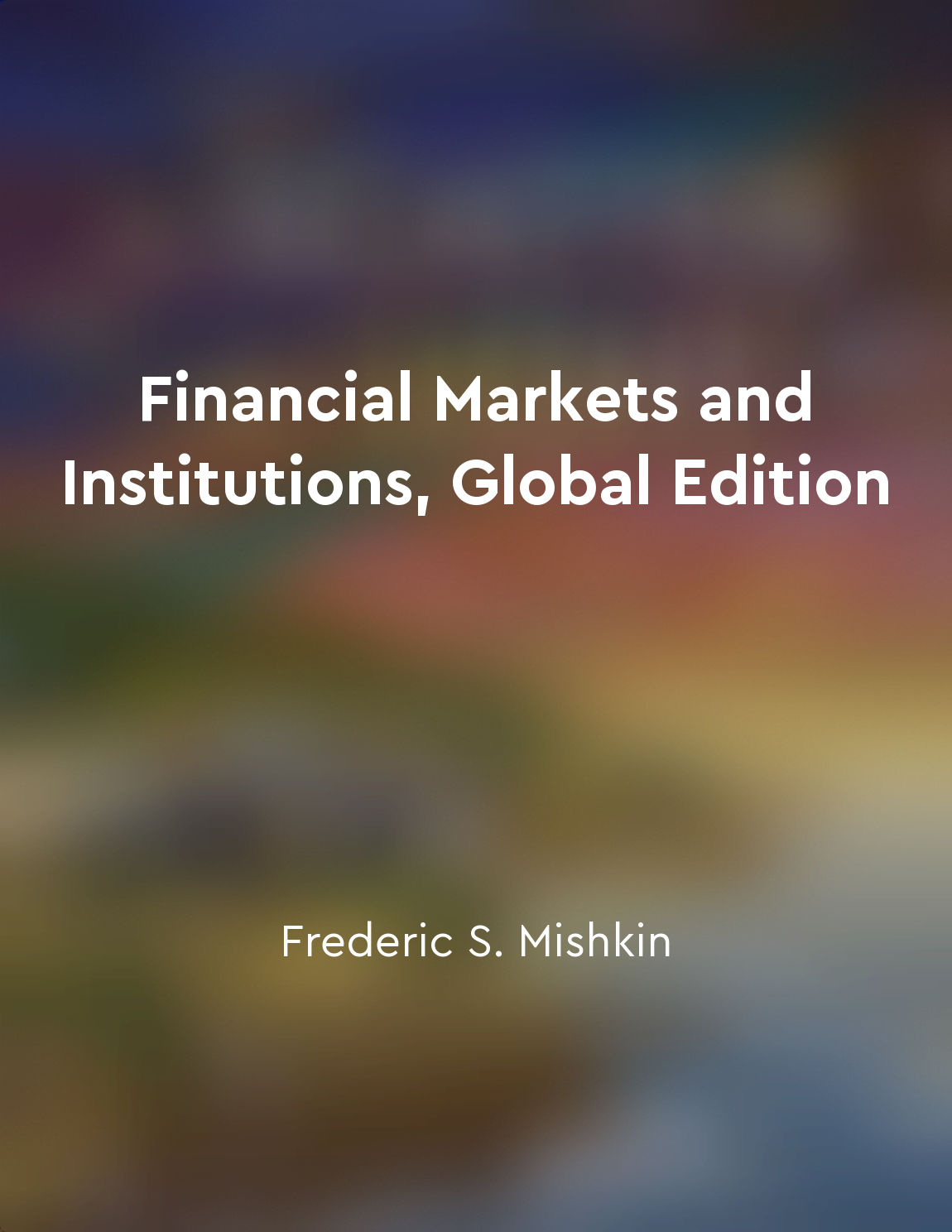Shadow banking activities operate outside traditional regulatory frameworks from "summary" of Financial Markets and Institutions, Global Edition by Frederic S. Mishkin,Stanley G. Eakins
Shadow banking activities refer to a range of financial activities conducted by non-bank financial institutions, such as hedge funds, money market funds, and investment banks, that operate outside the traditional regulatory frameworks that govern banks. These activities often involve the creation and trading of complex financial products, such as mortgage-backed securities and collateralized debt obligations, that can have significant implications for the stability of the financial system. One key characteristic of shadow banking activities is their reliance on short-term funding sources, such as repurchase agreements and commercial paper, to finance their operations. These funding sources can be volatile, as they can be quickly withdrawn in times of financial stress, leading to liquidity problems for shadow banks that can spill over into the broader financial system. Another key feature of shadow banking activit...Similar Posts

Market efficiency ensures prices reflect all available information
Market efficiency is a key concept in financial markets that has significant implications for investors and the economy as a wh...
Wealth inequality
In the aftermath of the Great War, a stark reality emerged - the wealth of nations was distributed in a highly unequal manner. ...
Consumer surplus measures consumer benefit
Consumer surplus is a concept that reflects the benefit consumers receive from purchasing a product or service. It represents t...
Supply and demand are key determinants of market equilibrium
Supply and demand are essential factors in determining market equilibrium. The interaction between these two forces ultimately ...
Importance of agriculture in the Indian economy
Agriculture has always been a crucial component of the Indian economy, playing a significant role in the country's overall deve...
Intellectual debates shaping the course of history
In the turbulent times of the Baroque era, intellectual debates were not merely academic exercises but powerful forces that cou...
Unemployment rates rose sharply
The crash of 1929 brought about a sudden and severe increase in unemployment. People lost their jobs at an alarming rate as bus...
Enforcement mechanisms are vital for regulatory success
In the realm of regulation, the effectiveness of enforcement mechanisms cannot be overstated. Without robust mechanisms in plac...
Greed and irresponsible lending
The financial crisis of 2008 was fueled by a toxic combination of greed and irresponsible lending. Banks and financial institut...
